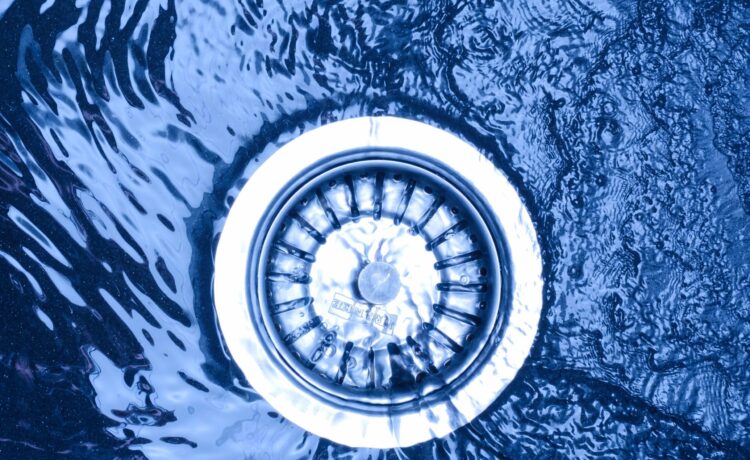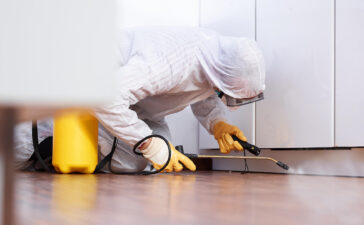Blocked drains can be a real pain, disrupting our daily routines and causing unnecessary stress. Whether it’s a slow-draining sink or a completely backed-up toilet, dealing with blocked drains is something no one wants to experience. But fear not! In this step-by-step guide, we’ll show you how to bid farewell to those pesky blockages once and for all. So grab your plunger and put on your DIY hat – it’s time to take control of your plumbing woes!
Common Causes of Blocked Drains
1. Hair and Soap Scum: One of the most common culprits for blocked drains is a build-up of hair and soap scum. Over time, these substances can accumulate in your pipes, creating a barrier that prevents water from flowing freely.
2. Food Waste: Pouring leftover food scraps down the sink may seem convenient, but it’s a major cause of blockages. Grease, oil, and solid food particles can stick to the inside of your pipes and eventually lead to clogs.
3. Tree Roots: Believe it or not, tree roots can wreak havoc on your drainage system. As trees grow, their roots can infiltrate underground pipes in search of water and nutrients. This intrusion can cause blockages or even pipe damage.
4. Foreign Objects: Sometimes we accidentally let things slip down the drain that shouldn’t be there – like cotton swabs, sanitary products, or children’s toys. These foreign objects are notorious for causing blockages as they get stuck in the pipes.
5. Poor Pipe Installation: If your drainage system was improperly installed or has deteriorated over time due to age or wear and tear, you’re more likely to experience frequent blockages.
By understanding these common causes of blocked drains solutions, you’ll be better equipped to prevent them from happening in the first place! Stay tuned for our next blog section where we’ll discuss signs that indicate you have a blocked drain.
Signs of a Blocked Drain
When it comes to blocked drains, prevention is key. But sometimes, even with the best maintenance practices, clogs can still happen. So how do you know if your drain is blocked? Here are some signs to look out for.
A slow draining sink or bathtub is often an early indication of a blockage. If water takes longer than usual to go down the drain, it could be a sign that something is obstructing the pipes.
Another telltale sign is foul odors emanating from your drains. A blocked drain can cause stagnant water and debris to accumulate, resulting in unpleasant smells wafting through your home.
If you notice gurgling sounds coming from your drains when using water fixtures like sinks or toilets, this could indicate a blockage as well. The gurgling sound occurs when air tries to escape through small openings due to an obstruction in the pipe system.
An overflowing toilet or backed-up sewerage system should never be ignored either. These are clear indications that there’s a significant blockage somewhere in the plumbing system and require immediate attention from a professional plumber.
By being aware of these signs, you can catch potential drain blockages early on and take appropriate action before they become major issues. Regular maintenance and prompt intervention will help keep your drains flowing smoothly for years to come!
DIY Solutions for Clearing Blocked Drains
Dealing with a blocked drain can be a frustrating experience. Fortunately, there are several DIY solutions you can try before calling in the professionals. Here are some effective and practical methods to help you clear that stubborn blockage.
1. Use boiling water: This simple yet effective method can often do wonders in clearing minor blockages caused by grease or soap buildup. Carefully pour boiling water down the drain and let it work its magic.
2. Baking soda and vinegar: The combination of these two household ingredients creates a powerful chemical reaction that helps break down debris and clear clogs. Start by pouring half a cup of baking soda into the drain, followed by one cup of vinegar. Let it sit for about 30 minutes before flushing with hot water.
3. Plunger power: A plunger is an essential tool when it comes to unclogging drains. Make sure there is enough water in the sink or bathtub to cover the rubber part of the plunger, then plunge vigorously up and down until the blockage loosens.
4. Wire coat hanger: Straighten out a wire coat hanger as much as possible, leaving a small hook at one end. Insert it into the drain carefully and use gentle twisting motions to dislodge any trapped debris.
5.Cleaning solution: There are various commercial cleaning solutions available specifically designed to tackle blocked drains effectively.
When to Call a Professional Plumber
While there are plenty of DIY solutions for clearing blocked drains, there may come a time when you need to call in the professionals. Here are some signs that indicate it’s time to bring in a professional plumber:
1. Persistent blockages: If you’ve tried all the DIY methods and still can’t seem to clear the blockage, it’s best to leave it to the experts. They have specialized tools and equipment that can effectively remove even the most stubborn obstructions.
2. Foul odors: If your drains emit unpleasant smells even after cleaning them, it could be an indication of a more serious issue deeper within your plumbing system. A professional plumber can identify and fix the root cause of these odors.
3. Slow drainage: If water is taking longer than usual to drain from your sinks, showers, or toilets, it may be a sign of blockage further down the pipes. Attempting to resolve this on your own could potentially worsen the problem or damage your plumbing system.
4. Multiple clogged fixtures: When multiple fixtures in different areas of your home are experiencing simultaneous blockages, it suggests a larger issue with your main sewer line or drainage system. This requires expertise and experience that only professional plumbers possess.
5. Water backups: One surefire sign that you need immediate assistance is if water backs up into other fixtures or overflows from drains whenever you use certain appliances like dishwashers or washing machines.
By recognizing these signs and knowing when to call a professional plumber, you can save yourself from unnecessary stress and potential damage caused by persistent blocked drains.
Remember, while maintaining healthy plumbing systems is important for every homeowner, sometimes seeking professional help is necessary for long-lasting results.





